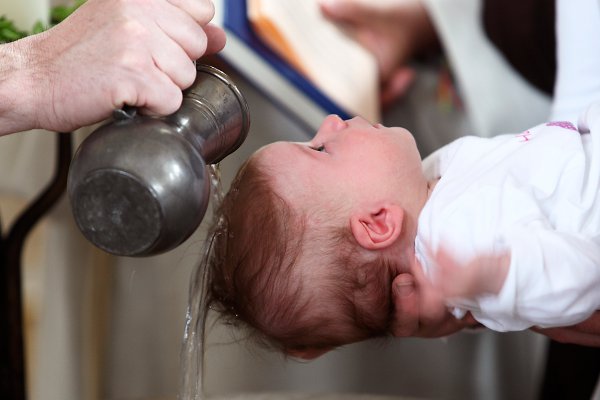THE BELIEF in Limbo - a place where unbaptised babies go - has declined substantially in Ireland over the past few decades, a research study from Queen's University has revealed.
In Catholic theology, limbo refers to the border place between heaven and hell where souls who died without being baptised go.
Though these souls were not necessarily condemned to punishment, limbo would leave them deprived of eternal happiness with God in heaven.
In Ireland, notions like Limbo, Heaven, Hell and Purgatory, were handed down by parents, schoolteachers, priests and nuns, and drew on teachings of the Catholic Church.
However, a new study led by Professor Liam Kennedy, Professor Emeritus of History from the Institute of Irish Studies at Queen's University, has highlighted a change in attitudes towards these concepts.
Professor Kennedy conducted a survey questionnaire in association with the Irish Countrywomen's Association to reach his conclusions.
Some 26 women in total, including 23 from the Irish Countrywomen's Association, took part in the survey which was carried out in 2017.
These women varied in ages, with birth dates ranging from the 1930s to the 1960s. They also represented all four of Ireland's provinces.
According to the study, 75 per cent of respondents felt the decline of belief in Limbo was due to the changing beliefs and values of the Catholic laity in Ireland, rather than change emanating from the centre of the Catholic Church in Rome.
However, 25 per cent of respondents believed that the teaching authority of the Catholic Church - in other words the Pope and the hierarchy - was the source of change.
Comments from respondents in the survey include:
- More people [were] less accepting of Church/Catholic myths.
- Young people became more educated and began to question stuff that did not make sense to them.
- They were no longer afraid of the "fire and brimstone" that our previous generations were afraid to question.
- People think Limbo is a ... cruel place and don't think that children go there. They believe in a more merciful God and that children will go to Heaven directly.
- Because people didn't buy it anymore.
 (Source: Pixabay)
(Source: Pixabay)Commenting on the findings, Professor Kennedy said:
"The term Limbo does not appear in the Bible or the New Testament. It seems the concept was developed over time by Christians to handle two problems: one was the fate of those who led just lives and who died before Christ came on earth to redeem humankind; the other was the fate of unbaptised babies in the event of death.
"Children growing up in the Ireland of the 1950s will have a clear remembrance of a metaphysical space or place known as Limbo. For Catholics, though not Irish Protestants, this formed part of a spiritual cosmos which viewed Heaven and Hell as opposite poles, with Purgatory and Limbo occupying rather vaguely defined intermediate positions. But Limbo appears to have disappeared off the spiritual map."
"Catholics in Ireland, from the 1960s onwards, turned their backs on a religious belief they found not credible or even cruel and the institutional church itself placed less and less emphasis on the 'doctrine' of Limbo."
"A fear of Limbo drove parents to have their new-born child baptised as soon as was practicable. Otherwise, the infant risked losing eternal happiness and going into a void called Limbo. I have little doubt that mothers who had miscarriages or still-births suffered mental anguish as a result of the death of an unbaptised foetus or still-birth. Heaven was closed to the unbaptised, as indeed was consecrated Church ground."
Speaking about their own experience of Limbo, one respondent said:
"I was the eldest of ten children. But in 1954 I had a sister born named Marian (as it was Marian year in Ireland). She was born on a Saturday but died the next day.
"As was customary then my dad had to take her little body late at night well after dark to an old graveyard and on the perimeter of the graveyard. My dad had to bury her with no grave markings (an unknown grave). But at the time he made a little cross shape tied together with twine, made from two sticks and stuck them in the ground. Every year my dad used to take me to Marian's grave to say a little prayer."
 Picture: iStock
Picture: iStockThe study also found a movement towards late baptism in recent times which meant that the mother, who was rarely at the baptism ceremony, was present at the moment of introducing the infant into her community of faith.
Previously the mother would not have been present at the baptism as they were held almost immediately after birth.
Professor Kennedy concluded:
"The survey was primarily concerned with belief in Limbo and its subsequent demise, as seen from the viewpoint of women. As the decades have gone by, belief in Limbo has withered. So much so that in this present day hardly any of those born in the new millennium will have the slightest notion of what Limbo was (or is), other than as a colloquial expression for being in some indeterminate mood or situation, as for example in the feeling of being 'in Limbo'. But it really did matter for the best part of a thousand years and gave rise to both fear and pain."
The full study can be read here.

